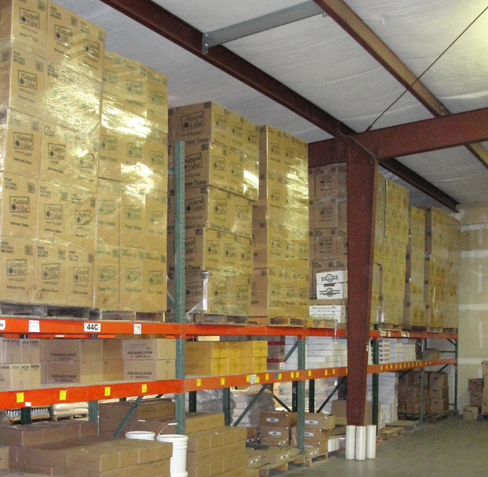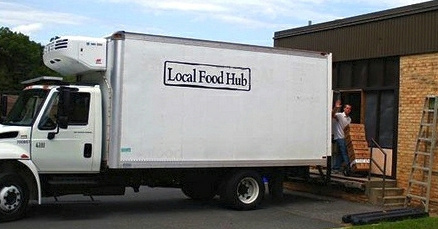Regional Food Hubs
A regional food hub is a business or organization that actively manages the aggregation, distribution, and marketing of source-identified food products primarily from local and regional producers to strengthen their ability to satisfy wholesale, retail, and institutional demand.
Overview
 In Kentucky, fewer than 10 entities were cataloged by USDA as food hubs, as of January 2017. However, many endeavors throughout the state display efforts that meet or move toward the definition of a food hub. It is helpful for farmers and food producers to understand that the term “food hub” is a general term referring to many different kinds of businesses and organizations that are all responding to meeting consumer demand for local foods. For example, not every agricultural cooperative will meet the definition of a food hub; some co-ops may only be wholesaling commodity crops or selling to one specific market channel. In addition, food hubs can include members that are not farmers, such as individuals or businesses involved in the aggregation and processing of food products.
In Kentucky, fewer than 10 entities were cataloged by USDA as food hubs, as of January 2017. However, many endeavors throughout the state display efforts that meet or move toward the definition of a food hub. It is helpful for farmers and food producers to understand that the term “food hub” is a general term referring to many different kinds of businesses and organizations that are all responding to meeting consumer demand for local foods. For example, not every agricultural cooperative will meet the definition of a food hub; some co-ops may only be wholesaling commodity crops or selling to one specific market channel. In addition, food hubs can include members that are not farmers, such as individuals or businesses involved in the aggregation and processing of food products.
Market Outlook
 Discussions of regional food hubs have gained traction as American consumers demonstrate greater interest in purchasing local food products. That interest among Kentucky consumers in buying locally grown or locally processed foods has been well-documented. At the same time, consumers desire certain levels of quality and safety assurance in their food purchases. The market for local food appears to be stable to growing at this time, but as more products claim the “local” label, product quality and presentation standards may become even more demanding.
Discussions of regional food hubs have gained traction as American consumers demonstrate greater interest in purchasing local food products. That interest among Kentucky consumers in buying locally grown or locally processed foods has been well-documented. At the same time, consumers desire certain levels of quality and safety assurance in their food purchases. The market for local food appears to be stable to growing at this time, but as more products claim the “local” label, product quality and presentation standards may become even more demanding.

